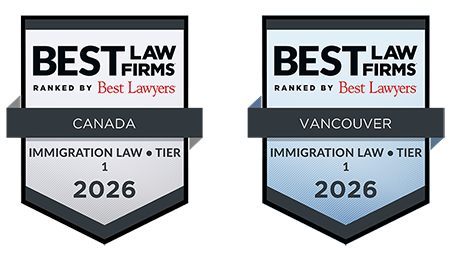As we reach the end of 2020, the effects of COVID-19 on Canadian immigration levels has become apparent: the Department of Immigration, Refugees and Citizenship Canada (IRCC) has not processed and approved as many permanent residency applications as it expected to in 2020. In many cases, existing permanent residency applications will not be finalized in 2020 because of COVID-19 related shutdowns slowing down IRCC’s standard processing speed and preventing applicants from meeting basic immigration requirements such as obtaining police clearance results or completing biometrics (fingerprinting) enrolment. In other cases, many applicants were expected to make new applications for permanent residency in 2020 based on their Canadian or even foreign work experience, but they were unable to do so because they were laid off or had their hours reduced.
Due to these circumstances, the Minister of Immigration, Refugees and Citizenship announced on October 30, 2020 that IRCC plans to significantly increase the number of new immigrants that Canada will welcome between 2021 and 2023 to over 1.2 million. Less than two weeks later, IRCC further announced on November 12, 2020 that, as part of its efforts to increase overall immigration levels to make up for 2020 shortfalls, new immigration pathways will be created for Hong Kong citizens to more easily come to Canada to work and qualify for permanent residency.
The latest announcement of the Hong Kong specific initiatives is a concrete example of how IRCC intends to increase immigration levels in Canada over the next three years by making it easier for certain groups to qualify for Canadian permanent residency. Specifically, the Hong Kong initiatives include two important strategies for both temporary and permanent immigration to Canada:
Work Permit
The Minister is creating a new temporary residence pathway for Hong Kong citizens to work in Canada. This new pathway will allow Hong Kong citizens to apply for a work permit that is valid for up to three years if they have completed post-secondary education in Canada or abroad within the last five years. The closest comparable work permit category that already exists is the Post-Graduation Work Permit (PGWP), which is only available to students who complete a post-secondary educational credential in Canada.
This new work permit category announced by the Minister will benefit applicants from Hong Kong because they will have the ability to apply for a Canadian work permit even if they have not previously studied in Canada. Like the PGWP, Hong Kong applicants will receive open work permits, which means that they can work for any employer in Canada in any occupation for up to three years, and then they can rely on that work experience to qualify for permanent residence.
Permanent Residence
The Minister is also creating two new pathways for permanent residence effective in 2021. At this early stage there are very few details about them, but we know that one pathway will be applicable to Hong Kong citizens who have gained at least one year of work experience in Canada and the other will apply to those who have graduated from a post-secondary school in Canada.
The new Hong Kong initiatives may be just the first of many by IRCC to create new immigration pathways in order to meet the higher immigration targets it has set for 2021 to 2023.
As 2021 draws closer we may begin to see similar new programs being announced to assist other groups of potential immigrants. For example, IRCC may consider issuing new work permits to individuals in Canada who had to stop working due to COVID-19 and lost valuable time on their existing or now expired permits to count towards obtaining Canadian work experience. Another potential option would be for IRCC to consider temporarily lowering the minimum entry criteria under existing permanent residency pathways, including those falling under Express Entry, to broaden the pool of people that can apply for permanent residency. This would directly assist applicants who were on their way to qualifying for permanent residency before the COVID-19 pandemic. Finally, IRCC must ensure that it has sufficient processing capacity from both a technological and human resources standpoint in order to approve more cases year after year.
The recent string of IRCC announcements will hopefully be the start of a trend that will continue into 2021 to address the hardships that COVID-19 has caused, while also meeting Canada’s goals of driving more immigration to Canada to help the economy recover in the next several years.





